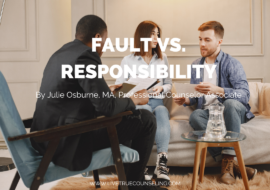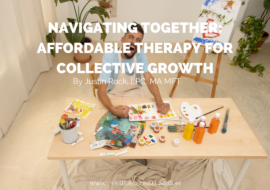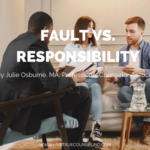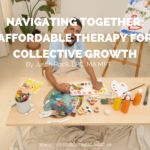Things We All Need When Job Searching
Looking for a job? Maybe you’ve just left your last position because of budget cuts, or it wasn’t the right fit, or you’re just burnt out and want to do something more meaningful to you. Or maybe you haven’t left yet because you can’t afford to or because you’re not sure how to even start looking for a new job, or you just don’t know yet what it is you want to be doing instead. Maybe you’re trying to re-enter the workforce after an extended leave and you have no idea how to go about finding a job in this day and age. What does “networking” actually mean? Why do I have to do it? What is LinkedIn? Do I have to have a profile? Do I have to fill the whole thing out?
Most people would rather hang upside down by their toenails than look for a job. As stressful as it can be, looking for a job is a necessary evil for most of us at some point in our adult lives. So what are the things that we need when job searching?
The first thing we need is a plan to find a job.
And not just any job – we don’t want to be back here in a few months or a year going through this again. We need a plan to find a job that’s the right fit. But what does it mean to have a job that’s the right fit?
In his book Drive, Daniel Pink tells us that when we find autonomy, mastery, and a sense of purpose in our work, we increase our physical and mental well-being. We seek to become “better and better at something that matters” and this is connected to our “quest for excellence to a larger purpose” (p. 79). A job that’s a good fit for us is going to provide us with a feeling that we’re working to our full potential and that the sky is the limit in terms of what we can learn in our work. That job will facilitate learning so that we feel not just competent in our work, but that we’re increasing our skills all the time. And that job will provide a sense of purpose in our lives. It’ll help us feel that we have something to contribute to society and that we’re making life better for ourselves and others by engaging in our work.
As we think about where our interests lie and what kind of job could give us all of these things, we might be tempted to buy into the adage that if you do what you love, the money will follow. (There’s even a book with that name.) No offense meant to Marsha Sinetar (the author of said book), but that’s just not always the case. Yes, taking some risks in our careers can get us out of slumps and help us discover new things that we may previously have not thought possible, but the reality is that most of us also have to pay attention to our finances. When considering a new career, it’s important to make sure that all three of these conditions are met: the work has to be something you love, something you’re good at, and something that someone will pay you to do. I may love sitting on the couch all day watching 80’s movies and I may be really good at it, but someone probably isn’t going to pay me to do it. (If I’m wrong, please feel free to contact me at your earliest convenience.) I also may love driving a race car and theoretically someone could pay me to do that, but the reality is that I’m not very good at handling a car that’s traveling over 80 mph. (Maybe 90 mph on a good day.) Unfortunately for some of us, we’re stuck in a job that we’re at least okay at and that someone will pay us to do, but we don’t love it. That job is not a good fit.
So how do we find this kind of job?
A good career counselor has the tools to help you discover what you love to do (if you don’t already know) and the tools to help uncover your strengths. And a good career counselor will be able to match your interests and your skills to careers that someone will pay you to do. Once you know which career(s) you want to focus on, a good career counselor will help you get your foot in the door and get hired. This may include:
- Helping you with your resume (What’s the right format? Do I list the dates of my education or not? What’s a functional resume and when should I use that one?);
- Helping you craft cover letters (What do I say to stand out and get their attention?);
- Helping you prepare for interviews (What’s the difference between a phone screening and an in-person interview? How do I answer the strengths/weaknesses question or the one about handling conflict? What are they looking for when they ask me to tell them about myself?);
- Helping you create or fine-tune your LinkedIn profile (Do I really need one of these? Do I have to fill everything out? Are certain sections more important than others?);
- Helping you with networking (Do I have to do this? How do I do this and still stay in my comfort zone? What is an informational interview, how do I do it, and why is it the key to me finding a job that’s the right fit?); and
- Helping you once you receive an offer (Should I negotiate salary? If so, how? What if I have two competing offers?).
If you’re thinking at this point that all of this sounds like a LOT of work, you’re not wrong. Often finding a full-time job is a full-time job. You might be reading all of this and feel yourself sinking into the couch even further. This feels daunting. You certainly don’t want to do all of this work to find a (better) job, but you may also be feeling like you can’t do it. You may not know where to begin. It might feel really overwhelming. At the same time, the alternative – sitting on the couch watching 80’s movies and feeling guilty about not doing some work to find a (better) job – also doesn’t feel good. You feel bad either way.
And these feelings are real. Because having a job that’s the right fit can give us a sense of purpose and meaning in our lives, without one we can sometimes lose hope. We can lose confidence in ourselves and in our ability to do something that benefits the world. We can lose our sense of our place in society. We may even feel worthless and like our lives don’t matter. While this sounds pretty extreme, I’ve seen folks who are between jobs sink into this kind of depression. Having a job not only gives us a sense of meaning and purpose, but it also gives structure to our day-to-day life. When we don’t have somewhere to go every day we often don’t know what to do with ourselves. Have you ever been unemployed and forgotten what day it is? Without that structure, one day can bleed into the next and weekends become just like any other day. We lose that thing to look forward to and we lack something to strive for.
Ideally our work isn’t the only thing that gives us meaning. But even when we have a larger sense of purpose in other areas of our life, not having a job that’s a good fit or being between jobs can still be a struggle. For instance, we may worry what others think if they find out that we’re unemployed. We may feel a sense of shame when we tell family and friends that we’ve lost a job or that we’re having a hard time finding a new one. We may not know whether we’ll find a job before the unemployment checks stop coming. We may have hope after we get a call for an interview or from a recruiter, only to be let down when we end up in the second spot for the position. The ebb and flow of hope and disappointment, of encouragement and discouragement can take its toll when we’re job searching. We may feel a loss of control over our future and struggle with not knowing if and when we’ll find the right job for us.
This is where therapy comes in.
This is when it’s helpful to have someone to talk to who understands what you’re going through and who has been there too. Someone who will help you explore your feelings of anxiety and guilt and at the same time the feeling of not wanting to get off of the couch. Someone who can help you build some structure into your day-to-day life and help you find meaning in other areas. Talking through your feelings and exploring what it’s like to feel hope and discouragement, shame, a loss of control, worry and anxiety can help. It can help give you a direction that feels right to you to help you move forward. It can help you unburden yourself of the distress you might be feeling. A good therapist will work collaboratively with you, will be your partner in what you’re experiencing, and will understand and accept you for who you are. As you’re embarking on your job search, don’t forget about this piece of the search. Taking care of your own mental well-being during this time is as important as the job search itself – and it’ll make you a better candidate for whichever job you find next.
*** A quick note about paid and unpaid work: This writing focuses on paid work, but is not meant to detract from the importance of unpaid work. Unpaid work can absolutely give us autonomy, mastery, and a sense of purpose and meaning and is of great importance in our lives. My admiration and gratitude goes out to everyone doing any unpaid work, either inside or outside of the home.
References
Pink, D. H. (2011). Drive: The surprising truth about what motivates us. Penguin.
Jenny Larson loves her work as a therapist at Live True Counseling and as a Volunteer Counselor at William Temple House. When not seeing clients, she can be found reading psychology books and celebrity memoirs, watching bad (good) 80s movies, and sewing or baking. While self-identified as a cat person, she also has a fondness for dogs and other animals.









